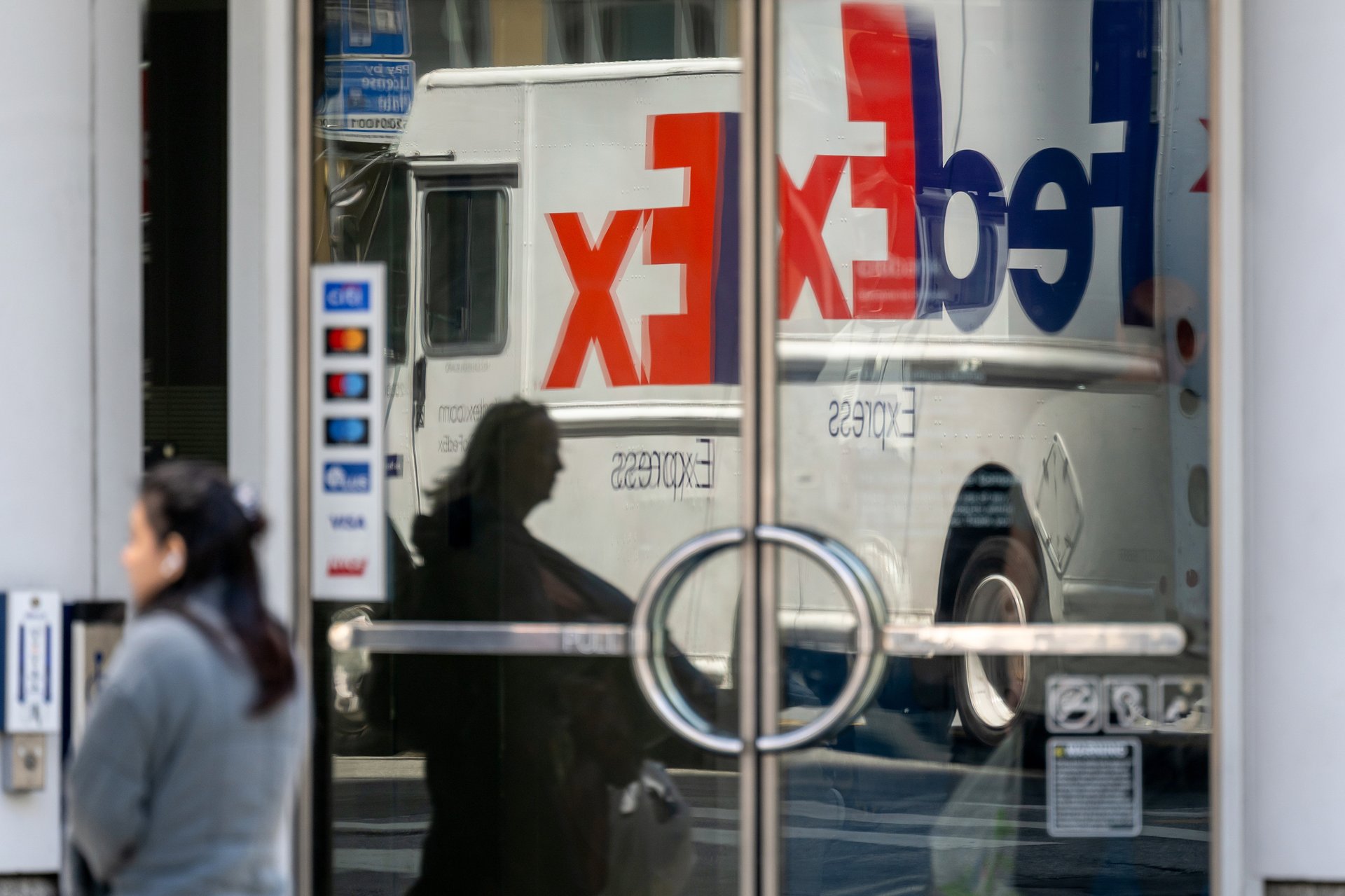FedEx signals economic turbulence ahead — and the stock slumps 5%
Investors are spooked as the shipping giant declines to give a full-year outlook, a potential recession signal

David Paul Morris/Bloomberg via Getty Images
FedEx's rough year just got worse. Shares were down about 5% premarket after the company released relatively strong fourth-quarter results but declined to provide a full-year forecast.
Suggested Reading
That's on top of the 16% drop in the stock price so far in 2025.
Related Content
What's behind the big drop?
Despite "ongoing headwinds," FedEx posted adjusted earnings per share of $6.07 on $22.2 billion in revenue, up slightly from the prior year, a modest beat over Wall Street expectations.
EPS rose to $6.07, helped by cost-cutting through the company's “DRIVE” efficiency program and higher shipping volumes at FedEx Express. For the full fiscal year, the company hit its $4 billion cost-reduction target and returned a whopping $4.3 billion to shareholders through dividends and stock buybacks.
FedEx has been in the midst of a multi-year effort to consolidate operations and reduce overhead as e-commerce growth slows, and the solid quarterly results suggest those efforts are on track.
But management declined to give full-year guidance, sticking only to quarterly estimates. And that appears to have spooked Wall Street.
Tariffs claim another victim
While the company asserted in its earnings presentation that it is "uniquely positioned to partner with customers as they navigate shifting demand trends and evaluate the impact of tariffs on their businesses," those tariffs and the resulting uncertainty continue to weigh on domestic and global volumes.
Worldwide, the "demand environment remains volatile," CEO Raj Subramaniam said.
Wall Street is also digesting news of a planned spin-off of the FedEx Freight division and the passing of Fred Smith, who founded the company in 1971. Smith came up with the idea for the company while an undergraduate at Yale, where he wrote a paper on time-sensitive shipments. FedEx began operations in 1973.
Recessionary signal?
Looking to the future, Subramaniam emphasized the company’s focus on “network transformation,” aiming for another $1 billion in cost savings in fiscal 2026. But despite those efforts, some analysts are noting that the softness in freight demand and cautious guidance appear to signal weaker macro conditions ahead.
B2B weakness often functions as a recessionary signal, running ahead of softness in consumer spending. So FedEx's longer-term outlook, or lack thereof, could be taken as one more sign of a slowdown.
